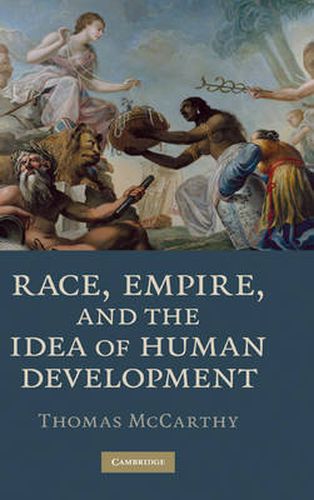Readings Newsletter
Become a Readings Member to make your shopping experience even easier.
Sign in or sign up for free!
You’re not far away from qualifying for FREE standard shipping within Australia
You’ve qualified for FREE standard shipping within Australia
The cart is loading…






In an exciting study of ideas accompanying the rise of the West, Thomas McCarthy analyzes the ideologies of race and empire that were integral to European-American expansion. He highlights the central role that conceptions of human development (civilization, progress, modernization, and the like) played in answering challenges to legitimacy through a hierarchical ordering of difference. Focusing on Kant and natural history in the eighteenth century, Mill and social Darwinism in the nineteenth, and theories of development and modernization in the twentieth, he proposes a critical theory of development which can counter contemporary neoracism and neoimperialism, and can accommodate the multiple modernities now taking shape. Offering an unusual perspective on the past and present of our globalizing world, this book will appeal to scholars and advanced students of philosophy, political theory, the history of ideas, racial and ethnic studies, social theory, and cultural studies.
$9.00 standard shipping within Australia
FREE standard shipping within Australia for orders over $100.00
Express & International shipping calculated at checkout
Stock availability can be subject to change without notice. We recommend calling the shop or contacting our online team to check availability of low stock items. Please see our Shopping Online page for more details.
In an exciting study of ideas accompanying the rise of the West, Thomas McCarthy analyzes the ideologies of race and empire that were integral to European-American expansion. He highlights the central role that conceptions of human development (civilization, progress, modernization, and the like) played in answering challenges to legitimacy through a hierarchical ordering of difference. Focusing on Kant and natural history in the eighteenth century, Mill and social Darwinism in the nineteenth, and theories of development and modernization in the twentieth, he proposes a critical theory of development which can counter contemporary neoracism and neoimperialism, and can accommodate the multiple modernities now taking shape. Offering an unusual perspective on the past and present of our globalizing world, this book will appeal to scholars and advanced students of philosophy, political theory, the history of ideas, racial and ethnic studies, social theory, and cultural studies.